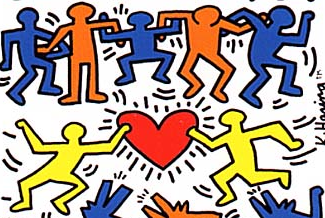Why the #IfIDieInPoliceCustody Hashtag is Wake-Up Call For Mentoring: Three ways Mentoring can Become More Critical Now
Soon after the news that Sandra Bland, a Black woman arrested in Texas, had died in police custody, the hashtag #IfIDieInPoliceCustody began to trend on Twitter. This hashtag is another sobering reminder that the world we and more importantly, the youth we mentor, exist in is full of daunting and highly racialized problems that America has yet to fully address. With each post I can hear the voice of a young Black protege speaking every word. I can imagine young person after young person standing to speak and leaving their last testament via a Twitter hashtag. Ultimately, the issues being raised by such a hashtag must be confronted and they will need to be confronted in complex and nuanced ways. But, how does the world of youth mentoring respond to a reality that produces the need for a hashtag like #IfIDieInPoliceCustody? Answering the call to My Brother’s Keeper and increasing a mentoring presence in places like Baltimore may not be effective if we don’t have the tools necessary to address the pervasive and systemic plague that is race in America. As youth mentoring continues to evolve, in both research and practice, a critical understanding of race must become more central to the work. There are three ways that youth mentoring researchers and practitioners can work to make mentoring more critical right now.
We Need to Talk About Race
While it seems we already talk too much about race as it is, the issue is conspicuously missing, at least in critical ways, from mentoring research and practice. To begin addressing the issue of race we must begin having very honest and open conversations about how race impacts the daily lives of both mentors and proteges, we must openly discuss how race impacts funding for mentoring programs, how honest programs can be about addressing issues of race while still attracting funders and, most importantly, why it can be hard to get white allies into rooms where mentoring and race are being discussed. Finally, without considering critical frameworks that might help us fully understand the complexities of race as a construct and how it intersects with class, gender, sexuality and other identities, we are still talking about it in surface ways that aren’t likely to be helpful to the youth we mentor. Ladson-Billings and Tate suggested that we educators begin to theorize race in order to understand educational problems[1]. We too, must theorize race in mentoring in order to better understand how to serve youth.
We Need to Recruit and Train Mentors the Right Way
There has always been a shortage of mentors. We know that there are more youth who want mentoring than mentors to serve them and we work tirelessly to engage people to serve as mentors to our youth. However, our recruiting efforts need to consider race. As challenging as that might be, we can’t possibly increase our efforts to serve youth of color without ensuring that we engage and recruit mentors of color. Furthermore, the mentors we serve must be trained to deal with issues of race. It’s no longer acceptable to have trainings on mentoring Black youth filled with mentors of color. If white allies want to mentor in communities of color they need to understand the racial dynamics youth of color must navigate and train to support youth in the same way that they train to support them academically or otherwise. Since mentoring rests on relationships we must work to build healthy relationships that acknowledge and not ignore the salience of race in our country.
We Need to Focus on Transformation, Not Adaptation
Mentoring makes a significant contribution to the rearing and raising of young people. However, this contribution is too often part of the status quo. In order for mentoring to become more critical and to be more effective in addressing the issue of race, we must grapple with the heart of what we are asking our young people to adapt to. If we are asking them to adapt to a world where the #IfIDieInPoliceCustody continues to be necessary, then we are not aiding our youth in transforming the world around them and we are not partnering with them to challenge racism, instead we are asking them to adapt to a system that is harmful and hurtful to the, We do, on one hand, have the responsibility to help our young people succeed academically and socially, but we must not sacrifice a critical consciousness and activism as a result. In fact, we must utilize the power of the mentoring relationships created to challenge and address the issues requiring necessary attention. Liang, Spencer and Rappaport call it “partnering with youth for personal growth and social change”[2] and this must become an integral part of critical mentoring practice.
We have a considerable way to go in addressing the issue of race, but mentoring, as it does in so many other areas, can make an impact. In fact, our work with youth is necessary for change. I don’t want the youth I mentor to have to live in a world where the #IfIDieInPoliceCustody hashtag exists. Do you?
#IfIDieInPoliceCustody hashtag. See posts related to the hashtag here: https://twitter.com/search?q=%23IfIDieInPoliceCustody&src=tyah
Torie Weiston-Serdan, Ph.D. is a veteran educator and founder of The Youth Mentoring Action Network, a youth mentoring organization. She specializes in training mentors to work with Black, Latino and LGBTQ youth populations and can be contacted at criticalperspective.org.
[1] Ladson-Billings, G. & Tate, W.F. (1995). Toward a critical race theory in education. Teachers College Record, 97 (1). 47-68
[2] Liang, B., Spencer, R., West, J., & Rappaport, N. (2013). Expanding the reach of youth mentoring: Partnering with youth for personal growth and social change. Journal of Adolescence, 36 (2). 257-267.











